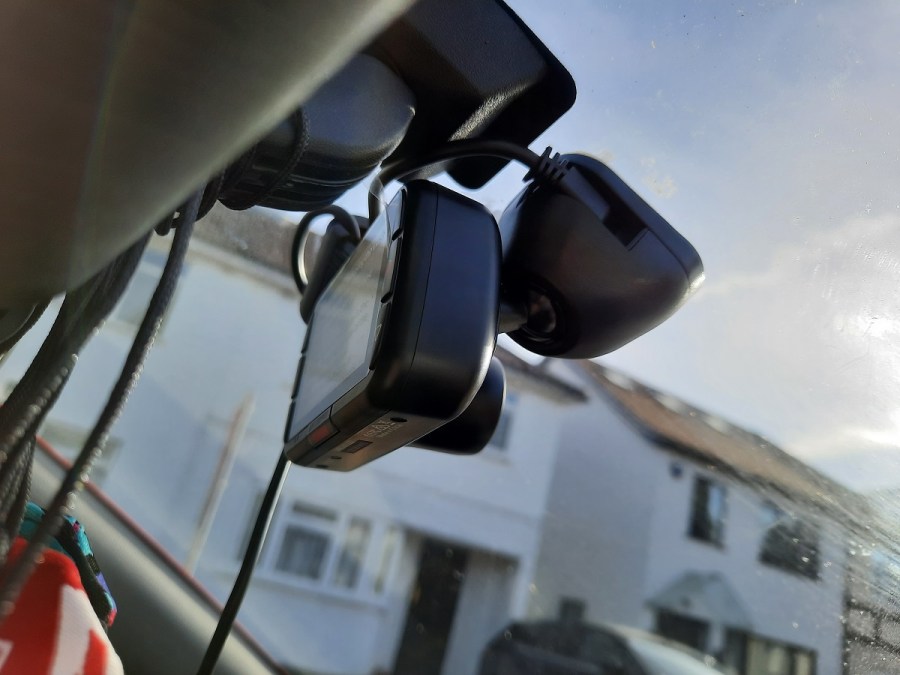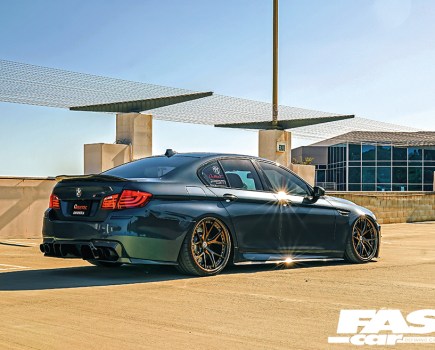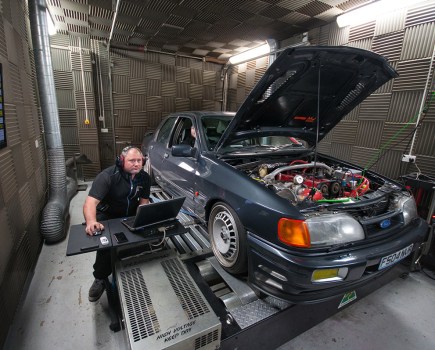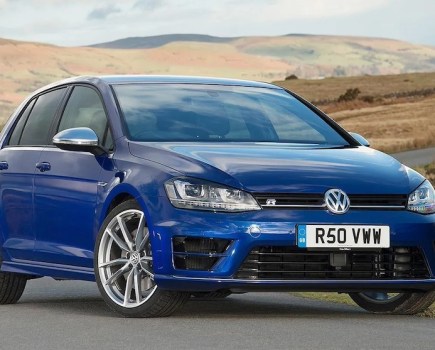In today’s world, video recorders are a common tool for streetwise road-users. So, join us as we search for the best dash cam for your car, including products from the likes of Garmin, Nextbase, and Thinkware.
Dash cams – I wouldn’t blame you for thinking that they’re all pretty much alike, but honestly, you’d be surprised how different they can be. Naturally, image quality is a big deal – are you happy enough with 1080p resolution, or will you not settle for anything less than 4K these days? And what about frame rate? Then you need to consider the actual functionality of the dash cam; do you want GPS data, driver assistance, or SOS software? Maybe you want a package that records out the rear window, as well as the front. Heck, if you’re reading Fast Car, you might even want your dash cam to help you achieve faster lap times at your local track.
By now, hopefully you’re getting the idea. Unless you’re clued up about what’s available and what you truly want, it’s easy to end up buying the wrong dash cam. This article will hopefully help you avoid that disappointing fate, as I’ve managed to test out a whole bunch of items first-hand. You can find all the best ones in the compilation below, along with all the key tech info and links to more in-depth reviews. So, happy dash cam hunting!
How we reviewed these products
With each of the products I tested, I wanted to make sure that I was able to portray a comprehensive ownership experience. That meant reporting on everything from the installation process, to the effectiveness of included extra features. I’ve even embedded footage from each dash cam into their own individual reviews, so do make sure to click through if you want to see that with your own eyes.
Naturally, having come into contact with a variety of dash cams while doing this job, I’m well-positioned to assess them against each other and figure out what type of ownership they’d suit best.
Which type of dash cam is right for me?
I’ve decided to collate an array of dash cams, each best suited to different specialized purposes. So, have a look at the list below, and see which category applies best to you. Hopefully, you’ll find something that’s just right!
- Best overall dash cam – Nextbase 622GW. RRP: $399.00 / £269.00, buy now.
- Best wireless dash cam – Garmin Dash Cam Live. RRP: $399.99 / £349.99, buy now. Vault subscription from $9.99/£9.99.
- Best budget dash cam – Nextbase 222. RRP: $99.99 / £79.99, buy now.
- Best compact dash cam – Viofo VS1. RRP: $129.99 / £119.99, buy now.
- Best front & rear camera package – Thinkware X1000. RRP: $299.00 / £269.00, buy now.
- Best high-end dash cam – Thinkware U3000. RRP: $699.99 / £529.00, buy now.
- Best dash cam for track days – Garmin Catalyst Driving Performance Optimizer. RRP: $999.00 / £899.00, buy now.
Best Overall Dash Cam
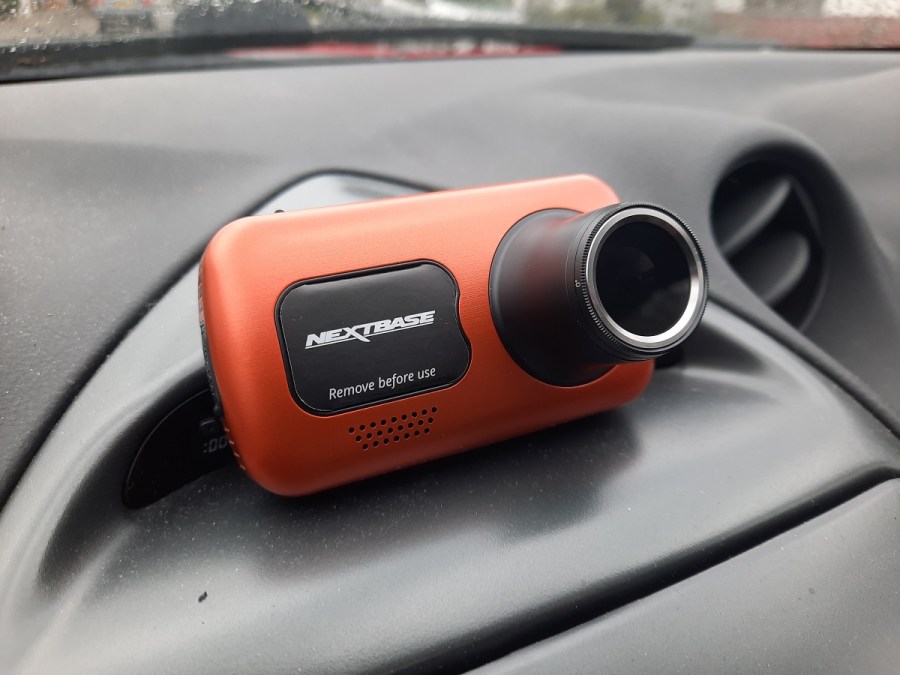
Nextbase 622GW
RRP: $399.99, buy now. £269.00, buy now.
Pros: excellent image quality, more features than I thought possible with a dash cam, easy installation.
Cons: quite expensive.
The Nextbase 622GW stands out to me as one of the best overall dash cams on the market. For a start, it offers up to 4K resolution videos, or if you’re more of a frame rate nerd, you can bring the resolution down in the settings to claim up to 120fps. Its Click&Go PRO mount is the best mounting system I’ve come across so far – super easy to adhere to glass, and thanks to its strong magnets you can connect the camera one-handed. The 622GW is also packed full of cool features. The basics like GPS and parking mode are there, but you also get Alexa compatibility, and can even set up What3Words-enhanced SOS messaging if you have a serious crash.
If you want to learn more, make sure to check out my full review of the Nextbase 622GW here.
Tech Specs:
- Resolution: 4K at 30fps, 1440p at 60fps, 1080p at 120fps
- Field of View: 140 degrees
- GPS Speed & Location: Yes
- Parking Mode: Yes
Best Wireless Dash Cam
Wireless dash cams aren’t necessarily what you may think they are. While it would be nice to be fully rid of power cables, in reality, ‘wireless’ dash cams simply refer to dash cams which can upload footage via the cloud, rather than needing a physical connection to your PC. So, they’re still better and more efficient than a ‘wired’ dash cam, but they’re not quite as good as you might have hoped. Sorry. Better to set things straight first though, right?
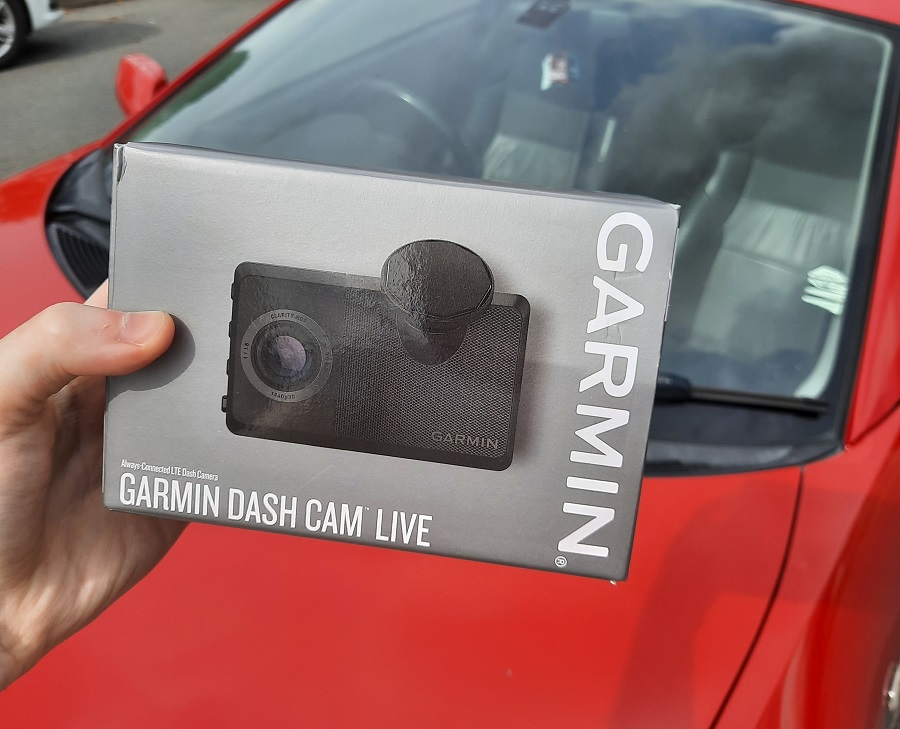
Garmin Dash Cam Live with LTE Connectivity
RRP: $399.99 / £349.99, buy now.
Pros: great image quality, easy installation, good app support.
Cons: subscription service is costly in the long-run.
Garmin make some top quality automotive tech products, and you can feel that when using the Garmin Dash Cam Live. It’s equipped with a 1440p HD resolution camera that records in 30FPS, with a 140-degree lens. Those specs amount to a pretty good picture quality, but at this price point you would probably hope for slightly better (see the options below for more). It’s wonderfully easy to install though, and the accompanying Garmin Drive app offers a great deal of functionality. Unfortunately, to gain access to all of those functions, you’ll need to pay a subscription fee which starts from $9.99/£9.99 per month. Overall, it’s a good product but there are certain flaws you need to assess before buying to decide if it’s the right dash cam for you. To find out more, read our full in-depth review!
Tech Specs:
- Resolution: 1440p
- Frame rate: 30fps
- Field of view: 140 degrees horizontal
- GPS Speed & Location: Yes
- Parking Mode: Yes
Best Budget Dash Cam
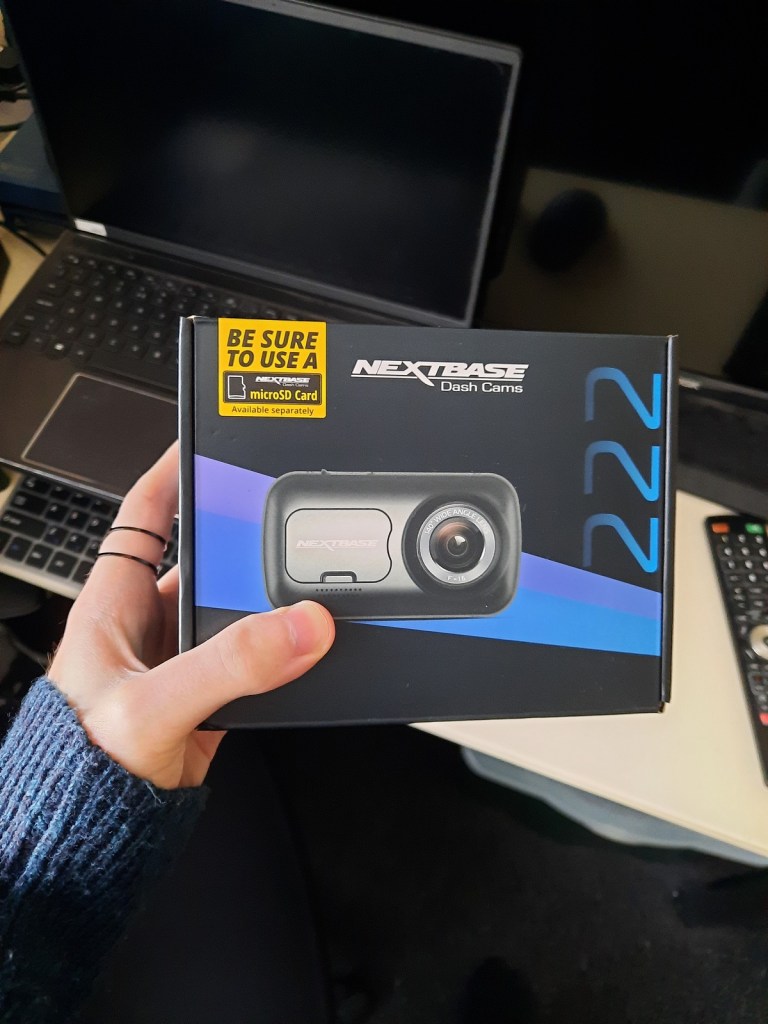
Nextbase 222
RRP: $99.99, buy now / £79.99, buy now.
Pros: affordable, good daytime image quality.
Cons: No GPS, underwhelming night performance.
As with the Thinkware mentioned above, this Nextbase 222 proves that you don’t need to buy from an obscure brand to get a competent dash cam on a tight budget. The 222 records in 1080P at 30fps and has a 140° viewing angle. The 6G lens, meanwhile, provides you with high-quality images. You can then view your recordings back directly through the camera thanks to its 2.5” high-resolution IPS screen. One neat feature which isn’t often seen is the 222’s Click&Go powered windscreen mount. This means the power cable goes directly into the mount rather than the camera itself, making it easier to install and remove inside the car.
Read my full review of the Nextbase 222 here.
Tech Specs:
- Resolution: 1080p
- Frame rate: 30fps
- Field of view: 140 degrees horizontal
- GPS Speed & Location: No
- Parking Mode: Yes
Visit our guide to the best budget dash cam in 2023 for more cheap dash cam advice.
Best Compact Dash Cam
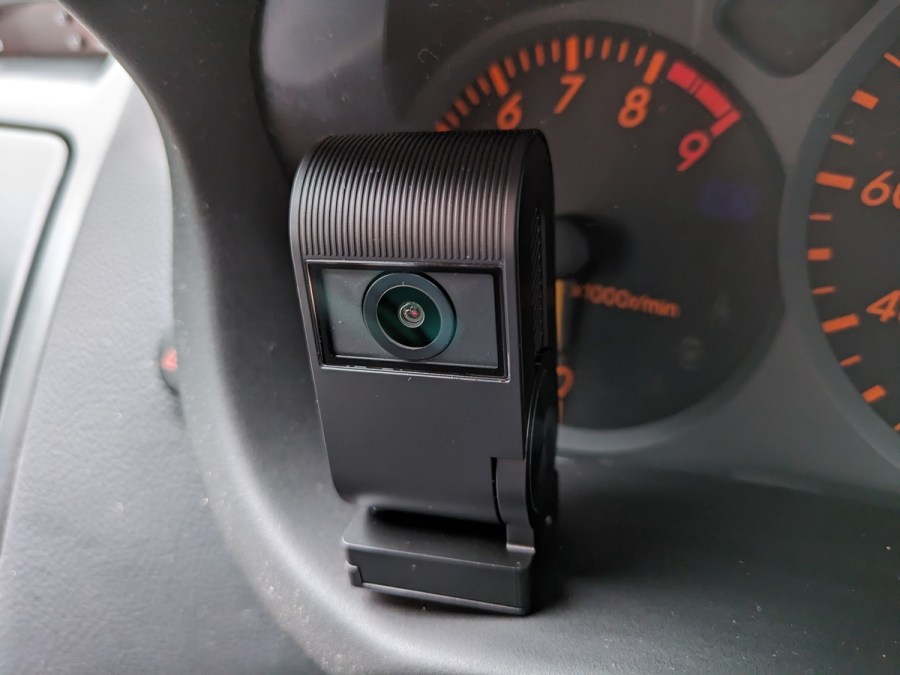
Viofo VS1
RRP: $149.99, buy now. / £118.81, buy now.
Pros: compact & discreet, good value for money, GPS and 1440p included.
Cons: lacks OBD2 power supply option, no CPL filter.
The Viofo VS1 is delightfully compact and super simple to install. Video footage is excellent for this segment of the market – 2K 1440p resolution at 30fps with a 140-degree field of view, to be precise. And, it even has in-built GPS, which some of its big-brand compact rivals lack. It’s light on features, so would only be worth getting if you want something which competently executes the basics of what a dash cam can offer.
For a much more in depth look at the Viofo VS1’s strengths and weaknesses, be sure to read our hands-on review of it.
Tech Specs:
- Resolution: 1440p
- Frame rate: 30fps
- Field of view: 140 degrees horizontal
- GPS Speed & Location: Yes
- Parking Mode: No (unless you buy additional Viofo HK5 hardwiring kit)
Best Dual Cam Package
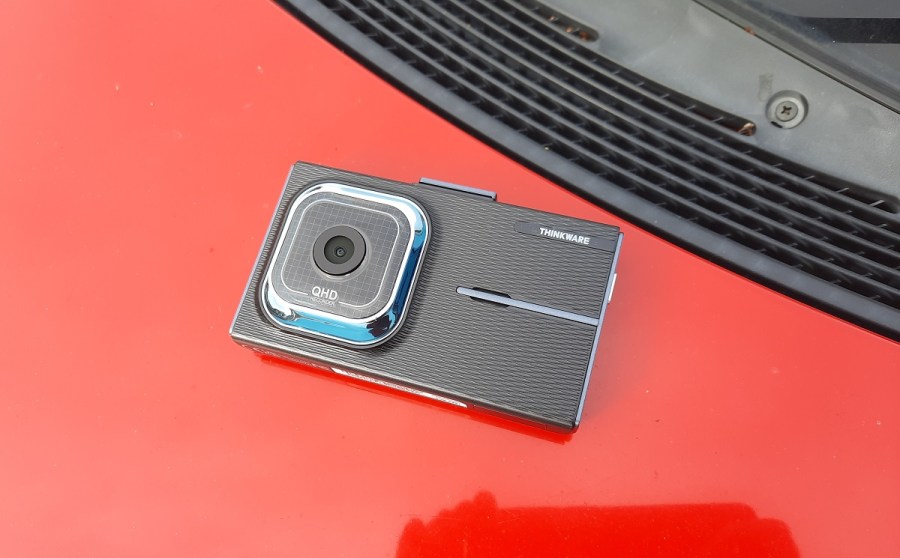
Thinkware X1000
RRP: $299.00, buy now. £269.00, buy now.
Pros: equal picture quality at front and rear, excellent night performance.
Cons: no GPS as standard.
The Thinkware X1000 is a really solid dual cam setup. What I really like about it is the fact that both the front and rear camera have the same picture resolution and field of view. Plus, Super Night Vision really does help the camera to reduce glare at night. I did find that its G sensor was a little oversensitive, but it’s better for that to be the case (and then turn it down in the settings) than to have a sensor which isn’t sensitive enough. The one thing that lets it down the most for me is the lack of GPS as standard, but in my opinion the core ingredients are good enough for that extra cost to be forgiven.
Read my full review of the Thinkware X1000 to find out more.
Tech Specs:
- Resolution: 1440p
- Frame rate: 30fps
- Field of view: 156 degrees
- GPS Speed & Location: Not as standard
- Parking Mode: Yes
Best High-End Dash Cam
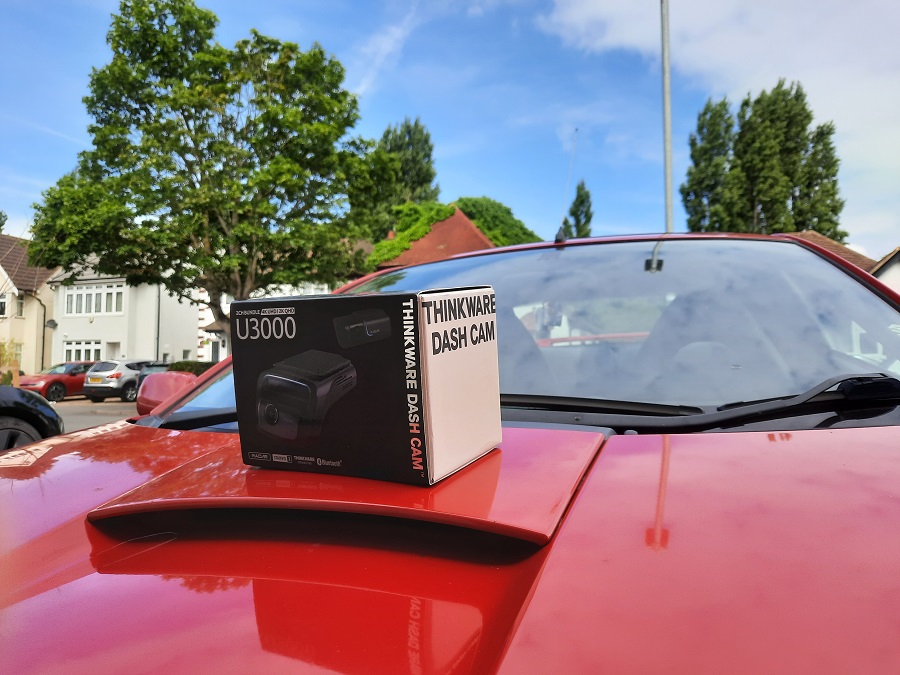
Thinkware U3000
RRP: $699.99 / £529.00 for dual set. Buy now. Can also be purchased as a front camera only for $549.99 / £399.00.
Pros: very good image quality at front and rear.
Cons: expensive, clunky mounting system.
The Thinkware U3000 is a high-end option, boasting 4K UHD footage up front, and 2K QHD footage at the rear. In standard guise it performs well, however Thinkware also throws in a CPL filter and boosted night vision at no extra cost, so you can upgrade it without paying any extra. As well as being a camera, it’s also a driver assistant too, using radar technology to offer lane departure warnings, collision warnings, and a sensor to prioritize recordings when impacts occur. If that sounds good to you, check out my in-depth review.
Tech Specs:
- Resolution: 2160p front, 1440p rear
- Frame rate: 30fps
- Field of view: 152 degrees front, 128 degrees rear (horizontal)
- GPS Speed & Location: Yes
- Parking Mode: Yes
Best Dash Cam For Track Days
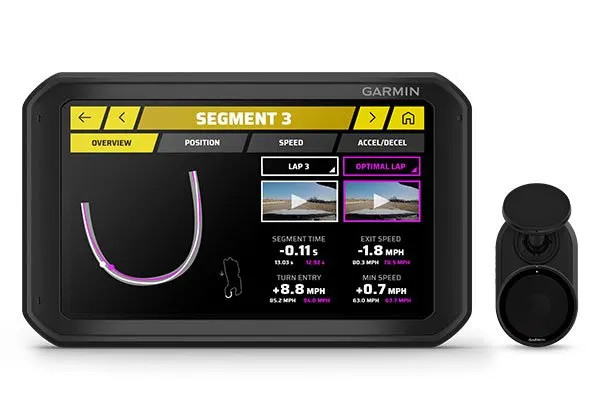
Garmin Catalyst Driving Performance Optimizer
Pros: the ultimate robot tutor for weekend track day warriors.
Cons: expensive.
The Catalyst Driving Performance Optimizer has to be one of the best dash cams for track days around. When you’re on a circuit, you’ll be recording footage for one of two reasons – either as a keepsake to watch back, or as a way of assessing how you can improve as a high-performance driver. Happily, this Garmin is packed full of tech which is ideal for either of those reasons.
Endorsed by Motorsport UK, this little camera is a bit like having a silent race engineer. It’ll record your lap times and offer all kinds of analytical data, even going as far as to suggest ways that you can go faster. For instance, it might advise you on whether to take an early or late apex at any given corner. Frankly, this camera and its supporting software has far more up its sleeve than we thought possible from a dash cam. And that’s why it costs as much as it does.
Tech Specs:
- Resolution: 1080p
- Frame rate: 30fps
- Field of view: 140 degrees horizontal
- GPS Speed & Location: Yes
- Parking Mode: No
What makes a good dash cam?
- Picture quality – It goes without saying that if you buy a dash cam, you’ll want it to capture clear recordings. As a general baseline, you should only entertain the idea of buying a camera that records in 1080p HD resolution or better, with a refresh rate of no less than 30fps. Though, if you can find one that’s rated at 60fps, that’ll give you a much smoother looking video. If you stick to those core requirements, you should avoid disappointment, whether it be in the video creator studio, or the courtroom. As an added bonus, see if you can find a camera with a polarity filter or similar, to help minimize the sort of the dashboard reflections seen above.
- Features and functionality – consider what you want/need from your dash cam. For example, do you also want it to act as surveillance while your car is parked? Do you want it to stream to the cloud? What about driver warning systems? We’ll touch on these, and more, next.
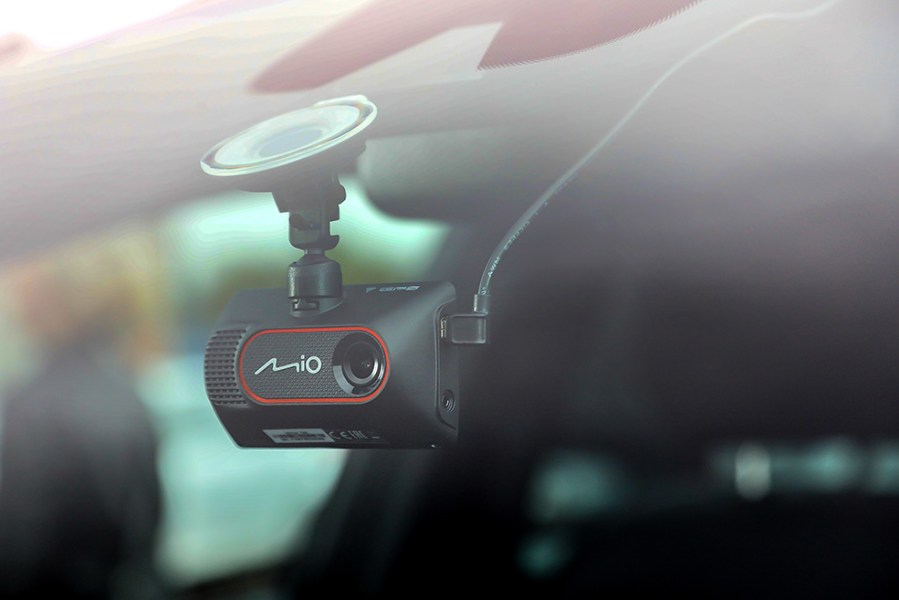
Types of dash cam
As with any industry, there are nuances and differences within the dash cam market. We’ll cover them all here:
- Standard dash cams – The common or garden dash cam is a (typically wired) camera that adheres to the inside of your windscreen and looks out over the hood of your car.
- Dual Cams – A dual cam setup adds a second rear-facing camera into the mix, giving you full coverage of both the front and rear of your car. Usually, the secondary rear camera piggy-backs off of the main front-facing one, so expect to have to connect these with a physical cable.
- App-based dash cams – These days, high-end dash cams make use of their own app. So, you can do things like access files or change settings from your smartphone. Often, these apps are linked to their manufacturer’s own cloud-based storage system, which makes accessing video files even easier.
- Screen-based dash cams – Old-school dash cams often have a screen attached to them. You’ll control the settings and so on from here, rather than on an accompanying app, and you’ll need to insert the camera’s MicroSD card into your PC or laptop to access its files. Not exactly a massive hardship, but slightly less convenient than the alternative. Plus. Screen-based dash cams can often be a little bulkier than their app-based counterparts.
Other types of automotive camera
- Track Day Cameras – If, like us at Fast Car, you enjoy a spirited drive, a track day camera will take your performance driving activities to the next level. These vary in levels of sophistication, from simple action cam-style devices, to full on-kits with telemetry and track-specific driving aids.
- Reversing Camera – while not technically a dash cam as such, it’s still a camera that serves a purpose in your car. If your car doesn’t come with one as standard, you can buy aftermarket reversing cameras which use rear exterior-mounted lenses and sensors to guide you via an onboard screen.
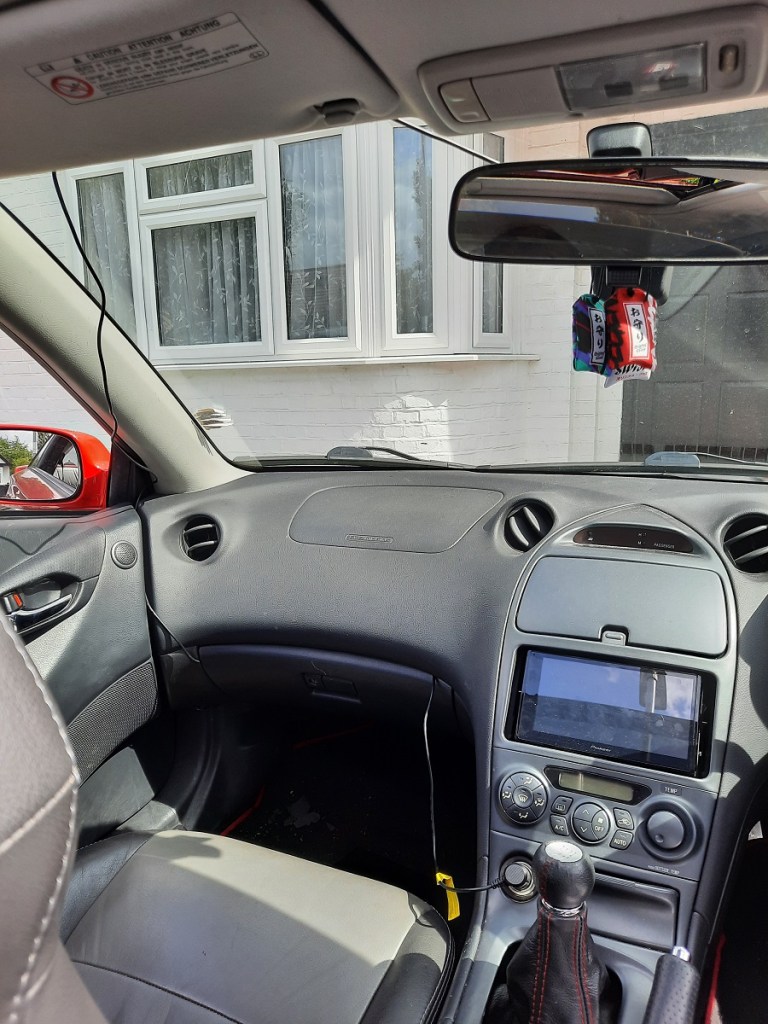
How to install a dash cam
Types of installation:
- 12V Power Socket – the easiest way to get your dash cam up and running is to make use of your car’s onboard 12V socket. Most dash cams will come with a 12V power lead supplied, so simply make the connection and then the camera will turn on and off in conjunction with whenever you switch the ignition on or off.
- OBD2 Socket – Alternatively, you can buy separate OBD2 power leads for many common brands of dash cam. These draw power from the car’s battery and send it up through to the dash cam, meaning that your dash cam will remain powered up even when the car is parked up with the engine off. This is useful for features such as parking mode, if your dash cam has it.
- Hardwiring – Hardwiring is the most complex type of installation as it involves specialized tools and the ability to make a direct connection between the dash cam and your car’s onboard fuse box. Again, this is helpful if you need a constant stream of power going to the dash cam even when the engine’s off, for parking mode or similar features.
For more information, be sure to read our dedicated guide on how to install dash cams.
Will a dash cam drain my car battery?
Theoretically, a dash cam could drain your car’s battery if it drew a constant power supply and didn’t have any cut-off technology. However, all reputable brands of dash cam incorporate sensors that can detect when the car battery is running low on charge. Once the dash cam recognizes that the battery has reached that threshold, it’ll stop drawing energy, ensuring enough charge is retained to turn the engine over when you return to your car.
Alternatively, if you use a simple 12V power connection, you shouldn’t need to worry about forgetting to unplug your dash cam. This form of power supply is only intended to draw a charge when the car’s engine is running, so no charge from the battery will go to the dash cam when the car is turned off.
Is it worth having a dash cam?
You might be reluctant to introduce another form of surveillance into your life, but there are several benefits to owning a dash cam. You could use it for track days, social media content production, or (as is usually the case) simply to help protect both you and your vehicle. Allow me to explain…
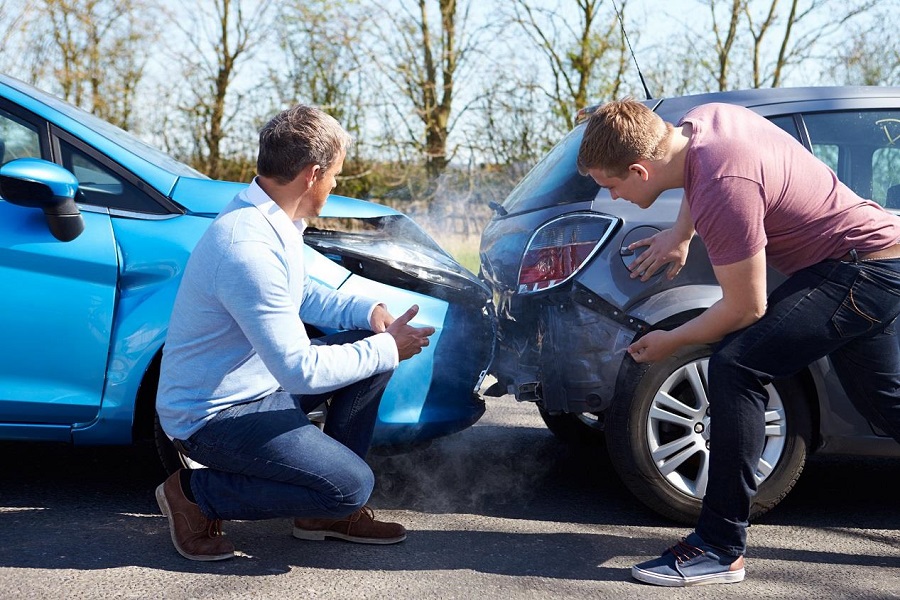
Legal uses for dash cams
As well as having all sorts of recreational uses, dash cams have a more serious side to them as well. In fact, more often than not, this is why people buy them. If you end up in accident that’s not your fault, or if someone lodges fraudulent claims against you, a dash cam can provide your insurance provider – and the courts – definitive proof of liability. Obviously, if you’re the one in the wrong, that might suck. But if you’re the victim, you’ll be glad the dash cam was there as it can greatly streamline that whole claims process.
Not only that, but if somebody knows they’re being recorded, they’re less likely to commit offences. So, if you encounter someone who’s being aggressive towards you – perhaps a fellow road-user, pedestrian, or police officer – simply pointing out that they’re on camera could help to diffuse the situation and keep you safe.
There’s some confusion around what impact dash cams have on the *cost* of insurance, but you can read more about that in the following guide: ‘Can a dash cam make my car insurance cheaper?’
Overall though, a dash cam can act as your witness, helping you get out of all sorts of sticky situations.

